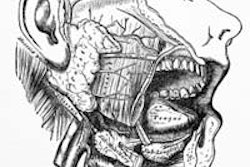Dear Oral Cancer & Diagnostics Insider,
Patients with head and neck squamous cell carcinoma (HNSCC) have a high prevalence of second primary esophageal squamous cell carcinoma (ESCC), according to a new study in JAMA Otolaryngology -- Head and Neck Surgery.
The researchers, from Taiwan, recommend routine esophageal screening of HNSCC patients in particular to help increase the early detection of second primary ESCC. Read more in this latest Insider Exclusive.
In other Oral Cancer & Diagnostics Community news, the dental community is questioning a recent statement by the U.S. Preventive Services Task Force and a Consumer Reports article that concluded there is insufficient evidence to recommend screening for oral cancer. Read about the task force's findings and the Consumer Reports' claim that chairside visual screenings for oral cancer are a waste of time.
And a probe of the DNA of esophageal adenocarcinomas (EACs) revealed that many share a distinctive mix-up of letters of the genetic code and more than 20 mutated genes that had not previously been linked to the disease. Click here for details of the research, which may offer clues to why EAC rates have risen and the abnormal genes and proteins that could lead to new therapies.
In a related story, HNSCC's with certain distinctive patterns could respond to specific targeted therapies, according to research presented at the recent American Association for Cancer Research meeting. The study identified more than 30 sites of significant change in the number of copies of a certain gene or genetic region.
And patients with oropharyngeal squamous cell carcinoma maintain a high quality of life a year after having transoral robotic surgery (TORS), according to a new study that compared TORS to traditional treatments such as external-beam radiation therapy or chemoradiation therapy.
Meanwhile, a growing number of parents say they won't have their teenage daughters vaccinated against the human papillomavirus (HPV) even though physicians are increasingly recommending adolescent vaccinations, according to a new study in Pediatrics.
And U.S. researchers have discovered a new mechanism by which HPV causes head and neck cancer and have developed a drug to block it. Click here to read about the treatment, which could be an important tool in the alarming growth of HPV-positive head and neck cancers.
Finally, antibacterial agents commonly used in mouthwash have been found to act as anticancer agents, potentially providing novel uses for everyday chemical compounds. Read more.



















